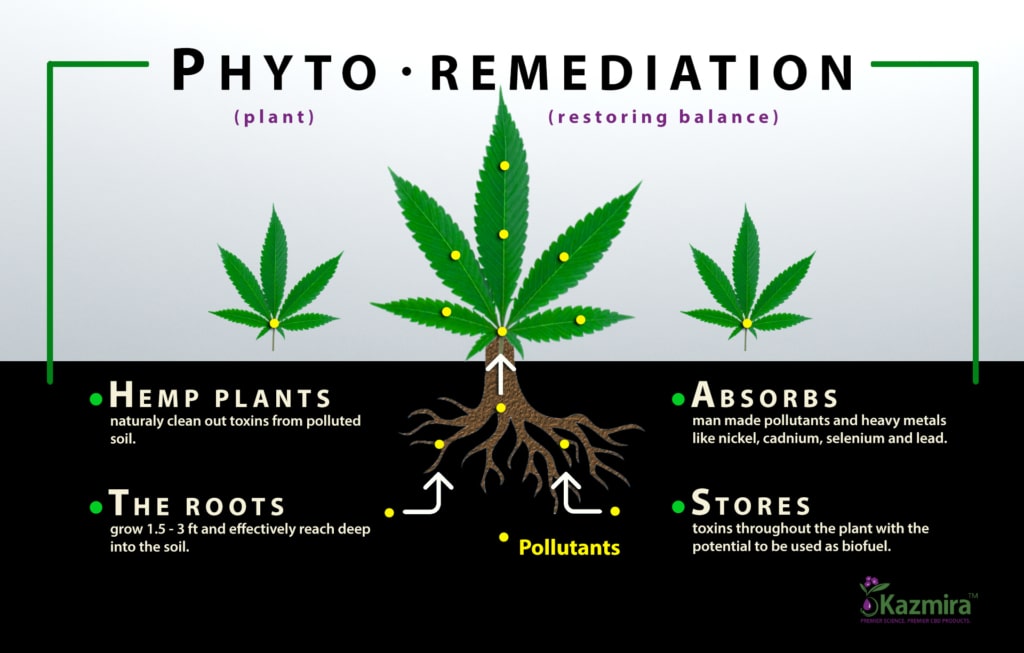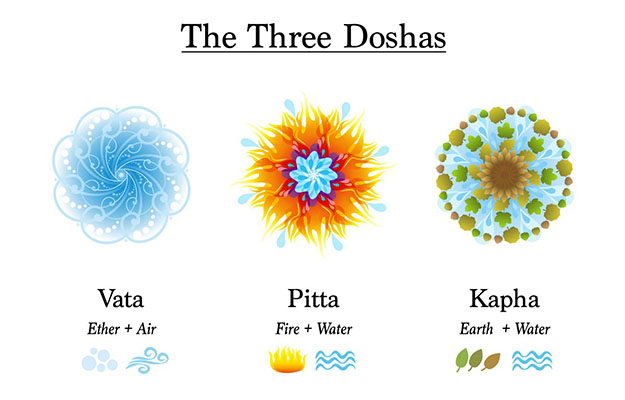Did you know that Hemp Plants have demonstrated effectiveness in “remediating the soil around the site of Russia’s Chernobyl Nuclear Disaster”? Wondering how it works?
The answer lies in the natural high biomass of Hemp plants, enabling them to absorb contaminants in various soils without the need for pesticides, herbicides, or chemical fertilizers. This unique capability is attributed to an ecological process known as Bioremediation, wherein Hemp purifies soil without relying on chemicals or machinery.

The intersection of Hemp and soil health becomes evident when addressing issues like toxic metal buildup, such as Cadmium (Cd) from cars, industrial waste, and chemical fertilizers. Hemp exhibits a high tolerance to Cadmium stress, making it well-suited to absorb impurities in contaminated sites.
Beyond Cadmium, Hemp has proven to absorb various heavy metals, including Nickel (Ni) and Lead (Pb). Scientific experiments have validated Hemp’s ability to remove radioactive chemicals from the soil, notably around the Chernobyl nuclear power plant in Ukraine. This success has sparked interest in using Hemp for land remediation in locations like the former US nuclear weapons factory in Rocky Flats, Colorado, and the Fukushima Nuclear Disaster site in Japan.
Given the escalating issue of soil pollution resulting from human activities globally, Hemp emerges as a safe and effective method for cleaning contaminated soils. The rise in soil pollution poses hazards for humans and animals, with adverse effects persisting for decades. As discussions on cleaning polluted sites unfold, research increasingly supports Hemp as a viable solution.
Soil pollution, a growing global problem, stems from human-induced excess pollution. Waste, exhaust from vehicles, factory runoff, and household waste introduce pollutants into the soil, creating hazardous environments for living organisms. The shrinking availability of safe land for food cultivation due to soil pollution and urbanization exacerbates this worldwide problem.
Recognizing the urgency to clean contaminated lands swiftly and effectively for agricultural use, the Environmental Protection Agency (EPA) endorses Bioremediation as an effective solution. This method employs living plants, specifically Hyperaccumulators, capable of thriving in highly contaminated areas, absorbing toxic materials through their roots, and storing them in above-ground parts. Out of over 400 plant species in this category, Hemp stands out as an ideal option for soil detoxification due to its natural root system.
Hemp’s roots, reaching 1.5 to 3 feet in length, penetrate beyond the surface, addressing widespread contamination in lower soil layers. With a relatively short maturation period of 180 days, Hemp offers a comparatively quick soil cleaning process.
Once Hemp has matured and absorbed toxins, the plants need not be discarded. The heavy metals and contaminants stored in the leaves can still be utilized. For instance, the floral buds, a source of pure CBD, remain usable for producing Hemp Biofuels.
To ensure non-toxic Hemp Oil, consumers are advised to choose products made from organically grown Hemp. Thorough labeling and Certificate of Analysis (COA) analysis should confirm the absence of metals, herbicides, pesticides, or harmful ingredients.
Even Hemp plants grown in toxic environments have industrial utility, serving purposes such as Biodiesel fuels or fiber for making over 25,000 products. Traditional uses of Hemp fiber include construction materials, paper, and clothing.
While the 2018 Farm Bill legalized Hemp, it comes with stringent regulations. Industrial Hemp, containing less than 0.3 percent THC and distinct from marijuana, is legal to grow. The legality of growing Industrial Hemp at home varies by state, with some requiring licenses and disclosure of the purpose of cultivation.
In summary, human-induced pollution is escalating, posing a significant challenge in the coming decades. Hemp, with its unique ability to absorb a variety of contaminants, offers a natural and effective solution for soil remediation, from large contaminated sites to small-scale farms and personal gardens. Besides its environmental benefits, Hemp presents a promising financial incentive.
Original Article : https://www.greenlifeorganics.com/cbd-blog/hemp-the-plant-that-cleans-soil-youll-love-learning-how-it-works#:~:text=Hemp%20Roots%3A%20The%20Key%20to%20Soil%20Detoxification&text=Those%20roots%20can%20reach%20more,as%20little%20as%20180%20days.



